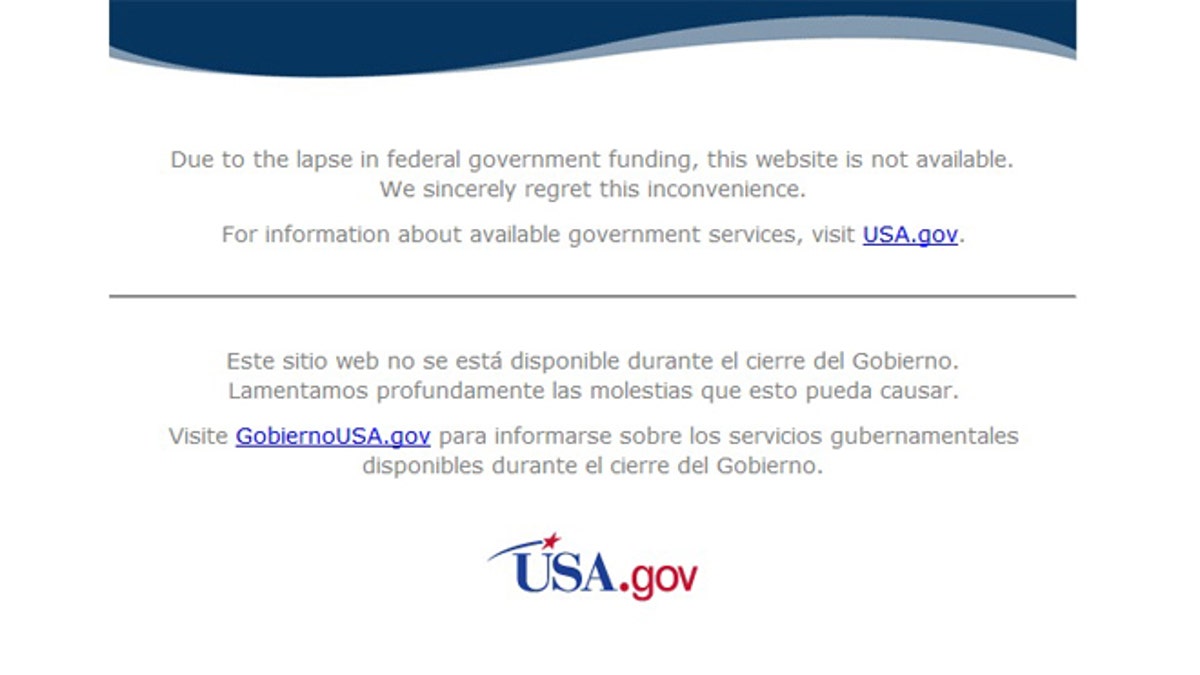
The websites for several major government agencies has been replaced with this simple disclaimer, which has some critics scratching their heads. (NASA.gov / FoxNews.com)
Wondering why Uranus spins backwards? Or how many moons Saturn has? Don’t ask NASA.
Looking for data on food and nutrition? Don’t turn to the USDA.
Want a map for your family's next trip, or suggestions on what do in a local state park? Don’t turn to the U.S. Forest Service.
The politicking in Washington over ObamaCare led to a stalemate last week, the furloughing of thousands of workers suspension of key government services -- a partial shutdown, or slimdown.
[pullquote]
But several sites were completely taken offline (temporarily that even included the website for the Amber Alerts system) rather than updated with a simple banner noting that updates wouldn’t be coming. And critics are asking: Who’s to blame for the information-less age? The answer, it seems, is Washington itself.
“The [government] seems to require agencies to pull down ‘inessential’ public-facing content even when this requires spending more money than leaving it up would,” wrote Julian Sanchez, a research fellow with the CATO Institute.
In other words, take it down, even if it would have been cheaper to leave it up.
That guidance is made explicit in tongue-twisting government-speak in a policy memo issued Sept. 17 by Sylvia M. Burwell, the director of the Office of Management and Budget.
“What if the cost of shutting down a website exceeds the cost of maintaining services?,” asks Burwell, before answering her own question: “The determination of which services continue during an appropriations lapse is not affected by whether the costs of shutdown exceed the costs of maintaining services.”
But that guidance may not explain why NASA.gov is no longer there. The redirect seen on that and other sites likely didn’t cost more than simply leaving up the maps, nutrition information, and space data, said Lance Ulanoff, editor in chief of Mashable.com.
“Creating a redirect for a domain is pretty easy and since all the content is under that domain, it is effectively hidden from view. Not an expensive strategy at all,” he told FoxNews.com.
So cost didn’t determine why the government took down NASA.gov. There may be other factors at work beyond budget, some suspect.
“Part of the risk right now in leaving sites that allow input to them up is if they are attacked there is no one around to respond to the attack timely (the support is mostly furloughed) so this may have been done to make sure the sites aren’t defaced while there is no one looking,” said tech analyst Rob Enderle told FoxNews.com.
Whatever the ultimate reason, the outcome is the same: less information.




















